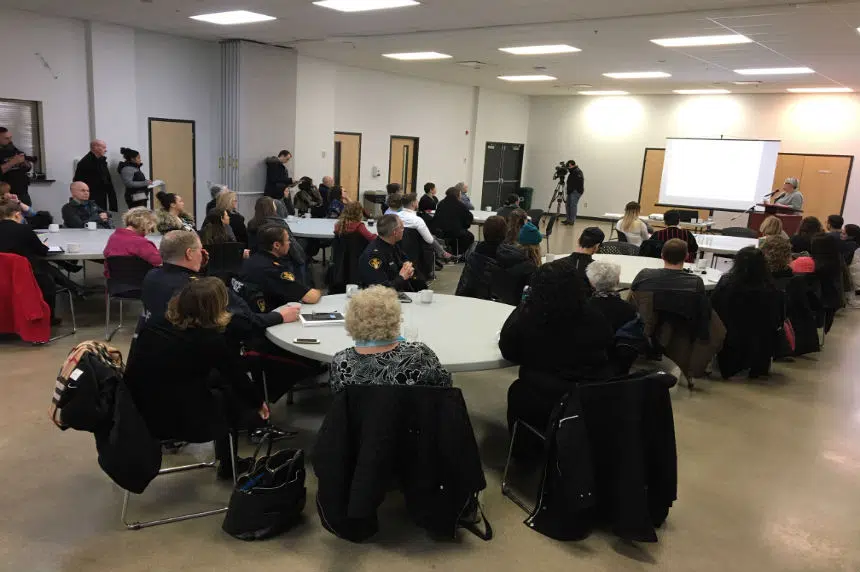A working group of more than 35 agencies has come together to tackle what it calls a meth crisis in Saskatoon.
The Crystal Meth Working Group (CMWG) — made up of community leaders, police, health practitioners, youth and former users — unveiled its comprehensive strategy at Station 20 West on Monday.
The strategy includes 29 recommendations from treatment and prevention to harm reduction, enforcement and research.
Agencies across the city said they are seeing a spike in crystal meth-related incidents. Possession charges alone have jumped from 15 in 2012 to 408 in 2018.
Randy Huisman, superintendent of traffic and patrol for the Saskatoon Police Service, said his officers are attending calls at all times of day related to the highly addictive drug.
“We’re seeing spikes in property crime; we’re seeing more violence on the streets and we’re seeing irrational behaviour. People are self-harming,” he said.
One of the recommendations on the enforcement front is doubling the number of mental health workers from two to four, all of whom can attend with officers on crystal meth-related calls.
“(The purpose is) so that we can refer people to supports and services and have less criminality added as a result of someone’s mental health or addictions problems,” said Huisman.
Tracy Muggli, director of mental health and addictions services for the Saskatchewan Health Authority, noted five years ago, one in 10 people who accessed that agency’s services were seeking help for crystal meth. Now it makes up half the agency’s caseload.
Muggli said health officials examined all their inpatient and outpatient services to see where the gaps are.
“We want to make sure that continuum (of care) is solid,” she said.
“(The goal is) when they’re returning to their community or their home or their family group that they have the right kind of supports to be able to manage any kind of triggers that they might have and get the supports they might need.”
Kayla Demong beat her meth addiction and her experience has inspired her to help others.
The associate executive director and family support co-ordinator with AIDS Saskatoon said she believes the collaborative approach gives the city the best chance to succeed.
“We can’t just get (addicts) better by making them get better. There needs to be services available at every level of their journey,” Demong said. “(There must be) barrier-free services that are available when they need them.”
Stakeholders noted implementation of some recommendations has begun, but others such as a 24-hour drop-in centre and youth shelter require further planning and funding.
A copy of the report and strategic action recommendations is available here.











